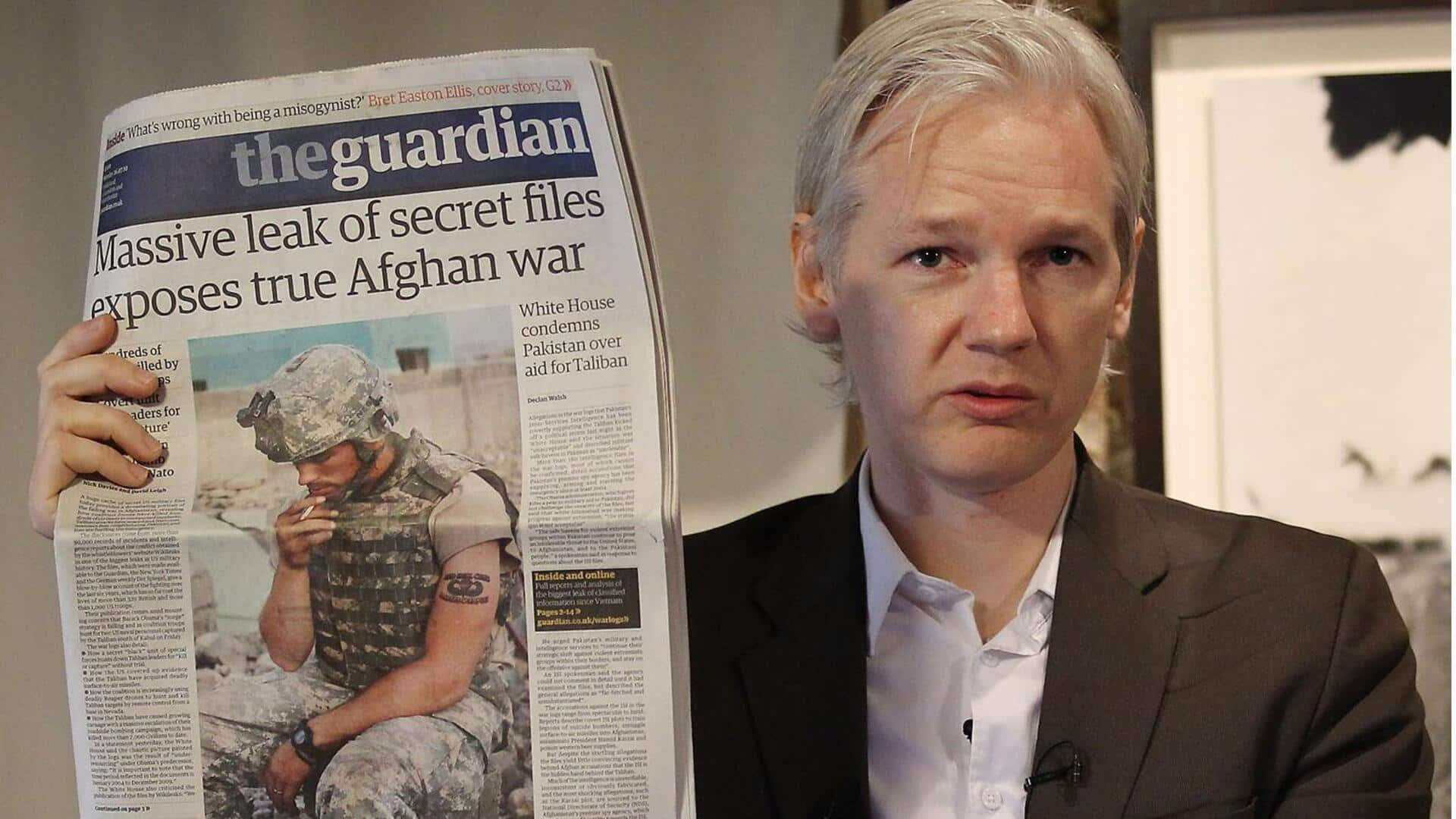
US mulls plea deal for Julian Assange in WikiLeaks case
What's the story
The US government is considering a plea bargain for WikiLeaks founder Julian Assange, per the Wall Street Journal. The deal would permit Assange to admit guilt for leaking classified documents, a minor offense, in return for dismissing the existing charges under the Espionage Act. Assange is facing 18 charges for publishing thousands of classified US government documents related to the Afghanistan and Iraq wars. His legal representatives said they had not been apprised of any shift in the prosecution's approach.
Uncertain future
If extradited, Assange could face 175 years behind bars
Barry Pollack, a defense attorney for Assange, has asserted that they have not received any notification regarding changes in the Department of Justice's stance on the case. He stated, "We have been given no indication that the Department of Justice intends to resolve the case and the United States is continuing with as much determination as ever to seek his extradition on all 18 charges." If extradited, Assange could potentially face up to 175 years behind bars.
Final verdict
UK High Court to rule on Assange's appeal rights
In the coming weeks, it is anticipated that the UK high court will decide whether to grant Assange additional rights to appeal his extradition. Currently incarcerated in Belmarsh prison, a high-security facility, Assange was reportedly unwell to attend his most recent hearing. If both judges rule against him, his only remaining recourse would be an appeal in the European court of human rights. If unsuccessful there, he could be extradited to the US within days.
Underlying politics
Political hurdles for Biden administration
The potential extradition of Julian Assange presents a political hurdle for President Joe Biden's administration, particularly during an election year. The Obama government previously chose not to charge Assange due to concerns about infringing upon first amendment rights. However, in 2019, the Trump administration proceeded with charges under the 1917 Espionage Act, asserting that Assange's actions endangered lives by providing a platform for leaked confidential documents.